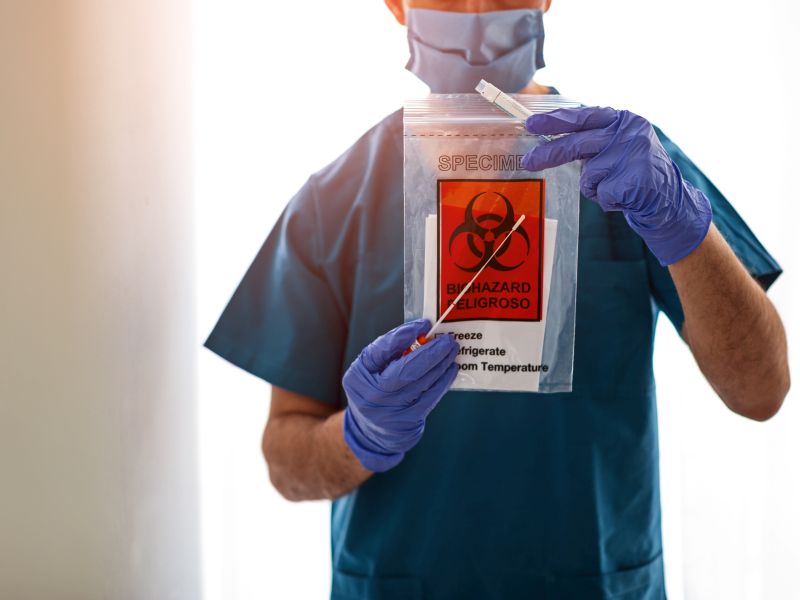Is ‘Pooled’ Coronavirus Testing the Next Step for America?

FRIDAY, June 26, 2020 (HealthDay Information)
Massive-scale “pooled” screening of People in america could suppress the spread of the new coronavirus and make it possible for most folks to return to their ordinary lives within many months, a new report implies.
The results occur as the White Residence coronavirus activity pressure eyes the approach as a prospective option to increase screening quickly across the state as scenarios surge in the South and Midwest.
Dr. Anthony Fauci explained to the Washington Put up late Thursday that White Residence officials are getting “powerful conversations” about the new notion. On Friday, the coronavirus activity pressure will hold a media briefing for the to start with time in approximately two months.
“When you are dealing with the type of resurgences that we are viewing in specific spots — and there is community spread which is plainly going on in a scenario in which a considerable proportion of the contaminated folks may be without indications — the common course of action of identification, isolation and contact tracing does not seem to be to be enough,” Fauci explained to the Put up. “Consequently, we are significantly contemplating added techniques, a person of which is pooled screening.
“What you want to do is discover the penetration of contaminated folks in your society,” Fauci explained to the Put up. “And the only way you know that is by casting a wide internet.”
The pooled tactic brings together samples from several folks at as soon as, and would offer you a way to limit the quantity of assessments needed, the New York Moments claimed. If the pooled sample comes again damaging, everyone in the pool is regarded to be virus-absolutely free.
If the sample comes again constructive, each and every patient who supplied a sample can then be analyzed individually. The approach can be particularly effective when the prevalence of infection in a population is significantly less than thirty%, the Moments claimed.
Dr. Deborah Birx, the coronavirus activity pressure reaction coordinator, explained to the American Society for Microbiology recently that “pooling would give us the capacity to go from a 50 % a million assessments a working day to probably five million individuals analyzed for each working day.”
The system is previously being made use of in Germany, Israel and many other countries, as effectively as in Nebraska and Tennessee, in accordance to the Moments.
In the pooled screening report, launched as a white paper and not a posted analyze, Cornell College scientists carried out a simulation of the pooled tactic and concluded that if 1% of folks have the coronavirus, this screening approach could empower extra than ninety% of People in america to properly return to their every day routines within 4 months.
This group screening would entail 6 million assessments a week — far extra than at the moment carried out — but it is really a possible aim, in accordance to simulation leader Peter Frazier, a researcher at Cornell.
“If we had the capability to provide assessments to a massive fraction of the population on a standard basis, that would make it possible for us to discover folks who are infectious but don’t know it, and then acquire motion so that all those folks don’t infect other folks,” Frazier reported in a college information launch.
“And a person of our huge problems is we don’t have the screening capacity to satisfy that want,” he extra.
In the simulation, the scientists presumed homes would be analyzed as soon as a week for 4 months, and family assessments would be pooled in groups ranging from forty one samples to sixty two samples.
Assuming a thirty% phony damaging price from incorrect swabbing and a 10% phony constructive price, the simulation showed that by the stop of 4 months, coronavirus prevalence would fall from 1% to .three% of the U.S. population.
“There is a trade-off — if you don’t have enough capacity to be ready to check everyone with individual assessments, then you can both check less folks at significantly less frequency with extra precision, or you can sacrifice a very little in terms of precision to check a massive quantity of folks at a increased frequency,” Frazier defined.
— Robert Preidt

Copyright © 2020 HealthDay. All rights reserved.
References
Sources: Cornell College, information launch, June twelve, 2020 Washington Put up New York Moments
